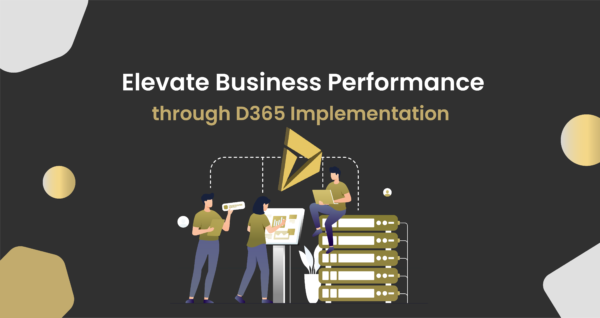In the digital era, the fusion of Enterprise Resource Planning (ERP) and Customer Relationship Management (CRM) through platforms like Microsoft Dynamics 365 (D365) is revolutionizing how businesses operate and engage with their customers. Implementing D365 requires a blend of technical expertise, strategic planning, and a deep understanding of business processes to unlock its full potential. The technical details of D365 implementation services and their role in accelerating business transformation are covered in detail in this blog post.
The Technical Edge of D365 in Business Transformation
Microsoft Dynamics 365 integrates ERP and CRM functionalities into a cohesive cloud-based suite, offering advanced analytics, machine learning capabilities, and comprehensive business applications. The platform’s adaptability allows for tailored solutions that fit the specific needs of businesses, driving efficiency and innovation. Key technical benefits include:
Unified Data Model

D365 employs a standard data model that facilitates seamless integration of business processes across finance, sales, service, and operations, breaking down silos and enhancing data consistency.
Advanced Analytics and AI

Embedded with Azure AI and analytics, D365 transforms data into actionable insights, enabling predictive analytics and informed decision-making.
Adaptable Architecture
With a modular approach, businesses can start with what they need and expand as they grow, ensuring scalability and flexibility.
Navigating the Complexity of D365 Implementation
A successful D365 implementation hinges on a structured methodology encompassing assessment, customization, deployment, and ongoing support. Here’s a closer look at the technical facets of the implementation process:
Assessment and Planning
Conduct a thorough analysis of existing business processes and systems to outline a clear implementation strategy that aligns with organizational goals.
Customization and Configuration
Leveraging D365’s adaptable framework to tailor the platform according to the business’s unique workflows, requirements, and challenges.
Data Migration and Integration
Meticulously migrate data from legacy systems and ensure seamless integration with external applications and services through D365’s robust API layer.
Testing and Validation
Employing rigorous testing methodologies to ensure the system’s reliability, performance, and security meet business needs.
Training and Change Management
Facilitating comprehensive training sessions to equip users with the necessary skills and knowledge to maximize the benefits of D365, coupled with strategic change management to ensure smooth adoption.
Ensuring Success Beyond Implementation
The journey doesn’t end with deployment. Ensuring the long-term success of a D365 implementation involves:
Post-Implementation Review
Evaluate the system’s performance and identify areas for optimization to ensure it continues to meet evolving business needs.
Continuous Learning and Support
Providing ongoing training and support to address new challenges and updates, ensuring the system remains efficient and effective.
Conclusion
Implementing Microsoft Dynamics 365 is a strategic decision that can significantly impact a business’s operational efficiency, customer engagement, and decision-making capabilities. However, the complexity of D365 implementation demands a technically proficient approach, focusing on strategic planning, customization, and continuous optimization. By leveraging expert D365 Implementation Services, businesses can navigate the challenges of digital transformation, unlocking new opportunities for growth and innovation.
Embarking on a D365 implementation journey requires a partner with the technical expertise, strategic insight, and a commitment to delivering tailored solutions that drive business success. With the right approach and support, businesses can harness the power of D365 to achieve their strategic objectives and thrive in the digital age.



